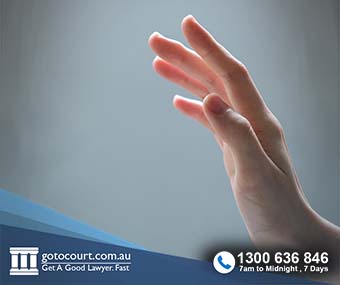Serious Harm in the Northern Territory
Serious Harm in the Northern Territory
In the Northern Territory, causing serious harm is an indictable offence under the Criminal Code 1983. In many other states, this offence is known as causing grievous bodily harm. The term grievous bodily harm is not used in the NT. This page outlines how serious harm matters are dealt with in the NT.
What is serious harm?
Serious harm means any harm that endangers, or is likely to endanger, a person’s life or that is likely to be significant or longstanding. It includes injuries such as broken bones, serious burns, permanent disfigurement and deliberate transmission of serious diseases.
Serious harm offences
Under section 181 of the Criminal Code 1983, unlawfully causing serious harm is an offence punishable by up to 14 years imprisonment.
Under section 174E of the Criminal Code 1983, negligently causing serious harm is an offence punishable by up to 10 years imprisonment.
Under section 174F of the Criminal Code 1983, driving a motor vehicle dangerously causing serious harm to a person is an offence punishable by up to seven years imprisonment.
Jurisdiction
Serious harm offences are indictable offences that must be dealt with on indictment. They are finalised in the NT Supreme Court.
Mandatory sentencing for serious harm in the NT
The Northern Territory has mandatory sentencing for certain violent offences.
Causing serious harm under section 181 of the Criminal Code 1983 is a level 5 offence under the Sentencing Act 1995. As such, a person who is found guilty of this offence must be sentenced to at least three months of actual imprisonment. This means that they must spend at least three months serving their sentence in prison (though the total term of imprisonment that is imposed may be a lot longer than three months).
Offences under sections 174E and 174F do not have mandatory minimum sentences. A person found guilty of either of these offences is likely to receive a custodial sentence, but there is no minimum term that applies. The sentence may be wholly or partly suspended.
Pleading guilty to serious harm in the NT
If you have been charged with serious harm in the Northern Territory, talk to one of Go To Court Lawyers’ experienced criminal solicitors about whether you should plead guilty. Our criminal lawyers will discuss the likely penalty range given your history and circumstances, the strength of the case against you and whether there are any defences available.
If you decide to plead guilty, our lawyers will present your case to the court in a way that draws attention to every factor in your favour. This may include gathering character references, psychological reports and evidence of steps you have taken to address the underlying causes of your offending.
Pleading not guilty to serious harm in the Northern Territory
If you have been charged with serious harm in the Northern Territory and want to fight the charge, Go To Court Lawyers will provide you with thorough legal advice so that you are across all your options and understand all the court processes involved in contesting a charge.
Our lawyers will go through the prosecution brief of evidence with you and advise you of any evidence that may be ruled inadmissible. They will discuss the merits of any possible legal defences and follow up any potential defence witnesses.
Defences to serious harm
Legal defence to serious harm charges in the Northern Territory include:
- The defence of self-defence
- The defence of mental impairment
- The defence of duress
- The defence of accident
Applying for bail on a serious harm charge
If you have been remanded in custody on a charge of serious harm, Go To Court Lawyers will help you to apply for bail. Decisions about bail in the Northern Territory are made under the Bail Act 1982.
In the Northern Territory, there is a presumption against bail for a person charged with causing serious harm under section 181 of the Criminal Code. This means that bail will not be granted unless the court is satisfied that circumstances exists that mean that bail should not be refused.
In deciding whether to grant bail, the court will consider the following:
- Whether the person is likely to attend court
- Whether they are likely to commit an offence
- Whether they are likely to interfere with witnesses or obstruct the course of justice;
- Whether they are likely to endanger the safety or welfare of a person;
- The person’s bail history;
- The person’s interests.
If you require legal advice or representation in any legal matter, please contact Go To Court Lawyers.

Affordable Lawyers
Our Go To Court Lawyers will assist you in all areas of law. We specialise in providing legal advice urgently – at the time when you need it most. If you need a lawyer right now, today, we can help you – no matter where you are in Australia.How It Works




1. You speak directly to a lawyer
When you call the Go To Court Legal Hotline, you will be connected directly to a lawyer, every time.

2. Get your legal situation assessed
We determine the best way forward in your legal matter, free of charge. If you want to go ahead and book a face-to-face appointment, we will connect you with a specialist in your local area.

3. We arrange everything as needed
If you want to go ahead and book a fact-to-face appointment, we will connect you with a specialist in your local area no matter where you are and even at very short notice.











